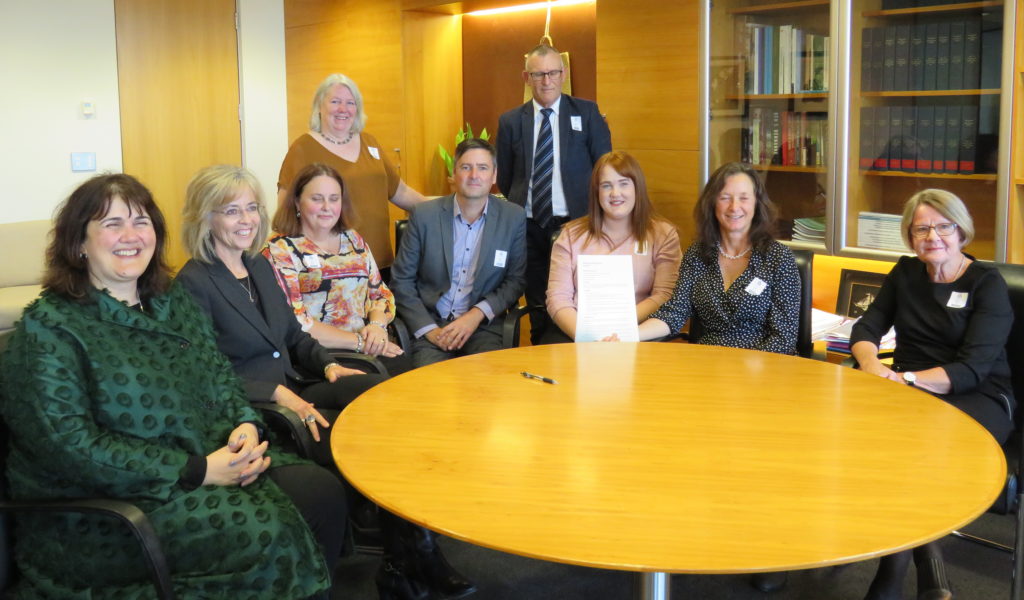
Image: Signing of the Midwifery Accord in April 2019
Background to the Accord
- The DHBs acknowledged in their own Workforce Information Report (September 2018) that the midwifery workforce is in crisis nationally.
- The Ministry of Health acknowledged that midwives’ workload and how it is managed is a fundamental issue that must be addressed.
- The Ministry and the DHBs committed to a Midwifery Accord to address safe staffing and workload in a joint project with MERAS and NZNO.
- We looked at ways to encourage midwives into DHBs through initiatives that would support students and new graduates, retain current DHB-employed midwives, and encourage midwives who have left the profession to return.
- MERAS has developed Midwifery Staffing Standards for Maternity Facilities 2014 and a Recruitment, Retention and Responsiveness Strategy 2018, strategies that are addressing the serious workforce issues in many DHBs.
Following the signing of the Midwifery Accord in April 2019, work has progressed to develop actions and strategies that will support midwifery workforce development, recruitment and retention for midwives employed by DHBs.
The Minister of Health Hon Dr David Clark was provided a health report on the Accord work in October 2019. Ideas include:
- a national DHB information package for final year midwifery students, highlighting what is on offer to those students who choose DHB employment
- a coordinated DHB recruitment campaign to encourage midwives into working in DHBs and to attract midwives who may have left, back into the workforce
- the development of career pathways, and support mechanisms DHBs can provide to help midwives progress through those pathways
- a DHB support package designed to provide clinical, cultural and pastoral support for midwives, that builds on existing support already provided by DHBs and includes a specific focus on supporting new graduates and midwives returning to practice
The group also has a focus on improving support for student midwives, particularly Māori and Pacific by:
- providing support for midwifery students in their final year
- providing wrap-around support (financial, cultural, pastoral and learning support) for Māori and Pacific students, recognising they are severely under- represented in the midwifery pipeline, and face some specific challenges.
As well as the focus on the recruitment and retention of midwives, the Midwifery Accord will also support the full implementation of CCDM (care capacity demand management).
Whilst the Accord focuses on DHB midwives, the strategies will hopefully also have a positive impact on all the midwifery workforce.
Caroline Conroy, MERAS co-leader (Midwifery) is on the Safe Staffing and Healthy Workplaces Governance Group and is leading our work on the Midwifery Accord.